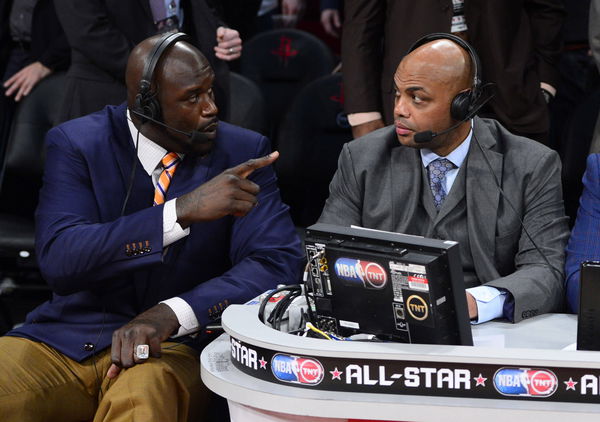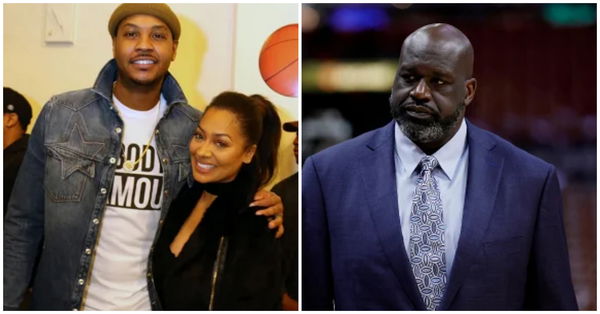Driven Out of Birthplace by 1 ‘Fear’, 72YO HoF Reflects on Being Reborn in $1.7 Billion Franchise’s Home City

Follow Us

via Imago
Basketball: Hall of Fame Enshrinement Sep 11, 2015 Springfield, MA, USA Spencer Haywood speaks during the 2015 Naismith Memorial Basketball Hall of Fame Enshrinement Ceremony at Springfield Symphony Hall. Springfield Springfield Symphony Hall MA USA, EDITORIAL USE ONLY PUBLICATIONxINxGERxSUIxAUTxONLY Copyright: xDavidxButlerxIIx 8793820
The NBA as an organization has helped countless basketball players in its 72 years of existence. The NBA athletes are able to earn a ‘decent man’s living’ for themselves and their families irrespective of their race or religion. However, it wasn’t always like that outside the NBA.
In a recent interview with an NBA legend, a 72-year-old HoF opens up about the one ‘fear’ that drove him out of his birthplace.
Why did 72-year-old HoF leave his birthplace?
ADVERTISEMENT
Article continues below this ad
The NBA was formed in 1946 and was racially integrated by 1950. It paved the way for many future African-American NBA legends to make a name for themselves and earn a good living. But the U.S.A as a country was still experiencing extreme racism in 1950.
Trending

Shaquille O’Neal and Charles Barkley’s Absence From “Inside the NBA” Is Due to TNT’s Uncertain Future, as Per Reports
May 15, 2024 07:32 AM EDT

Countdown Starts for Charles Barkley and TNT Crew as Ernie Johnson Makes Heartfelt Confession Before Parting
May 16, 2024 06:00 AM EDT

Carmelo Anthony’s Ex-Wife La La Freaks Out in Shaquille O’Neal’s Presence After 30YO Admirer’s Call
May 16, 2024 02:39 AM EDT

Mother of 5, Dwyane Wade’s Wife Gabrielle Admits Changing Herself Due to 3 Things
May 13, 2024 12:30 PM EDT

Exclusive: Real Motive Behind Shaquille O’Neal’s Attack on Nikola Jokic Revealed by Insider
May 15, 2024 12:54 PM EDT
Get instantly notified of the hottest NBA stories via Google! Click on Follow Us and Tap the Blue Star.

Follow Us
In an interview, HoF Kevin Garnett asks 72-year-old HoF Spencer Haywood what is the secret to his charisma and Haywood replies, “Detroit.”. The 72-year-old HoF then opens up about why he left his birthplace, Silver City, Mississippi. He said, “I had to leave Mississippi because if I stayed there, I would’ve been relegated to the cotton fields. I come from a place called Silver City, Mississippi. And there ain’t no silver and there ain’t no city. Just cotton fields.”.
Spencer Haywood explained, “And so when I got to Detroit, they dedicated me and recharged my whole life. Will Robinson saw me as this prized package and he was the first NC2A division 1st black coach in this Troy of NC2A. He saw me at age 15 and said, “I’m going to make this guy into a champion.”.
Spencer Haywood played high school college basketball in Detroit. He attended Trinidad State College for one year before he moved to the University of Detroit Mercy to complete his studies. After achieving everything he set out to achieve at the school and college level, he decided to play in the ABA in 1969. He was the Rookie of the Year and the MVP in his only season in the ABA. He was an extremely good basketball player, who went on to become a decorated NBA player. However, he changed to the NBA for an entirely different reason.
How Spencer Haywood changed the NBA
Winning the MVP award in his rookie season in the ABA after averaging an incredible 30.0 PPG and 19.5 RPG, he set the ABA’s all-time record. When he looked to transition to the NBA, however, he faced some major problems.
A 21-year-old Spencer Haywood’s college class did not graduate until the next year and so, his being drafted into an NBA team went against the then-NBA rules. The Seattle SuperSonics showed keen interest in drafting Spencer Haywood but the NBA front office opposed it.
ADVERTISEMENT
Article continues below this ad

via Imago
Copyright: xMannyxRubio-USAxTODAYxSportsx 4692966
The NBA eventually took Spencer Haywood and the Seattle SuperSonics to the Supreme Court. Since he was the sole earner in his family, he was considered as a “hardship case” and earned the right to earn a living. The court ruled in favor of Spencer Haywood, forever altering the world of professional sports.
WATCH THIS STORY| Hell bent on leaving the 76ers, James Harden still hopeful of creating ‘Dream Team’ with Kawhi Leonard and Paul George
ADVERTISEMENT
Article continues below this ad
He was a 5x NBA All-Star who made two All-NBA first teams and two All-NBA second teams. He made the most out of his basketball career and always seems grateful whenever asked a question about his basketball career.
What are your thoughts on Spencer Haywood’s inspiring life? Let us know in the comments below!
Edited by:

Caroline Joseph


